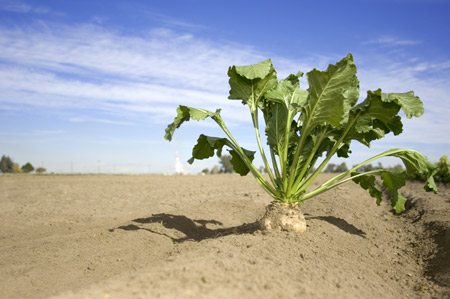 (Wall Street Journal) – When the price of sugar rose 40% in Sudan last year, Hussein Adawi temporarily abandoned his garment business to try his luck at importing the sweet commodity. Now, enjoying hefty demand and profits, he is staying the course.
(Wall Street Journal) – When the price of sugar rose 40% in Sudan last year, Hussein Adawi temporarily abandoned his garment business to try his luck at importing the sweet commodity. Now, enjoying hefty demand and profits, he is staying the course.
“Sometimes we’re overwhelmed by the orders,” said the 45-year-old importer who sources sugar from Thailand via Port Sudan, a city on Sudan’s Red Sea coast.
Sudan is emerging as a regional sugar trading hub, with the commodity offering a bright spot for an economy ravaged by decades of conflict and the plunging price of oil. At the same time, Sudan’s imports of refined sugar—a key food ingredient in the desert nation that lacks natural sweeteners like fruits—is helping to push the global sugar-price recovery, according to analysts and the U.S. Department of Agriculture.
The shift for Sudan has been propelled by a combination of market liberalization, demand for sugar from neighboring countries where prices are higher and swelling domestic consumption boosted by a record refugee influx. The refugee situation has pushed Sudanese demand for refined, or white, sugar to 1.5 million metric tons this year from less than 900,000 tons in 2014, according to the International Sugar Organization.
“The market has became sort of addicted to Sudan in the last year or so,” said one Dubai-based sugar trader. “Every time you looked at a vessel lineup, you saw vessels going to Sudan.”
Sudan is set to account for nearly 30% of new global sugar import demand from 2015-16, which is projected to rise by some 2.5 million tons, the USDA said. While global sugar import demand dropped nearly 2%, to 50 million tons in 2015, Sudan’s imports doubled, the USDA said.
After hitting six-year lows in August on ICE Futures Europe, white-sugar futures are up 23% from $333.60 a metric ton to $410.60 a metric ton as of Tuesday, rising ahead of an anticipated global production shortfall, analysts said.
Jodie Gunzberg, global head of commodities at S&P Dow Jones Indices, said imports from Sudan represented “one of the main forces contributing to sugar’s recent spike.”
The recent gains in sugar futures have been driven largely by erratic weather conditions in Brazil and India, the two largest producers, and magnified by moves by many Brazilian mills to abandon sugar milling to produce ethanol. As a result, production is expected to fall short of demand this year, for the first time since 2010, according to the International Sugar Organization. Heavy rains are blamed for suppressed sucrose content in sugar cane, and it is more profitable for processors to produce ethanol than sugar from the harvested cane.
One driver for record Sudanese demand is the number of refugees fleeing turmoil in war-torn neighboring states or traveling the migrant trail ferrying millions toward Europe from countries such as Eritrea and Somalia.
More than 500,000 of these migrants have entered Sudan this year, according to the United Nations, and their appetite for bread and juices is driving up demand for white sugar. “My customers keep increasing,” said Abdullahi Nimeri, a baker in Sudan’s capital of Khartoum.
Sudan now hosts 2.5 million refugees, according to the U.N. Increasing demand for processed foods and beverages is lining the pockets of business owners like Messrs. Adawi and Nimeri. Meanwhile, food companies such as Dubai-based Al Ghurair Resources LLC are expanding operations in Sudan to feed the swelling population, trade officials said and the company acknowledged.
The refugee surge is magnifying changes to the Sudanese market that also have helped boost demand: Accelerating economic growth has bolstered consumption, and Sudan’s removal from trading blacklists has eased imports.
Sudan three years ago scrapped sugar duties to address chronic shortages. The incentives lured importers, helping turn Sudan into a regional hub. Sudan’s industry ministry estimates that about 20% to 25% of the imported sugar is now re-exported to regional markets, notably Eritrea, South Sudan and Somalia, a fourfold rise since mid-2014.
Some analysts and traders said a portion of the stocks are smuggled to regional markets, a contention denied by the government.
New initiatives are offering additional help to importers. In October, the Financial Action Task Force, an international body that sets standards for anti-money laundering and combating terrorist financing, removed Sudan from a blacklist, easing money transfers to and from the country. As a result, Sudanese importers can more easily access letters of credit to import products.
The changes are on show in the Sudanese capital Khartoum, where traders are jostling to capitalize on higher margins and easier terms of trade.
How long the boom will last remains to be seen. The Dubai-based sugar trader said the price difference between sugar in Sudan and its neighbors will gradually tighten, reducing the appeal of the regional export trade.
But for now, at least, people like Sudanese restaurateur Meriam Oya no longer have to wait in long lines for scarce, locally made sugar.
“Steady supplies are helping us satisfy our customers, and our margins are improving” Mr. Oya said. “In our world, it is making life much easier.”




